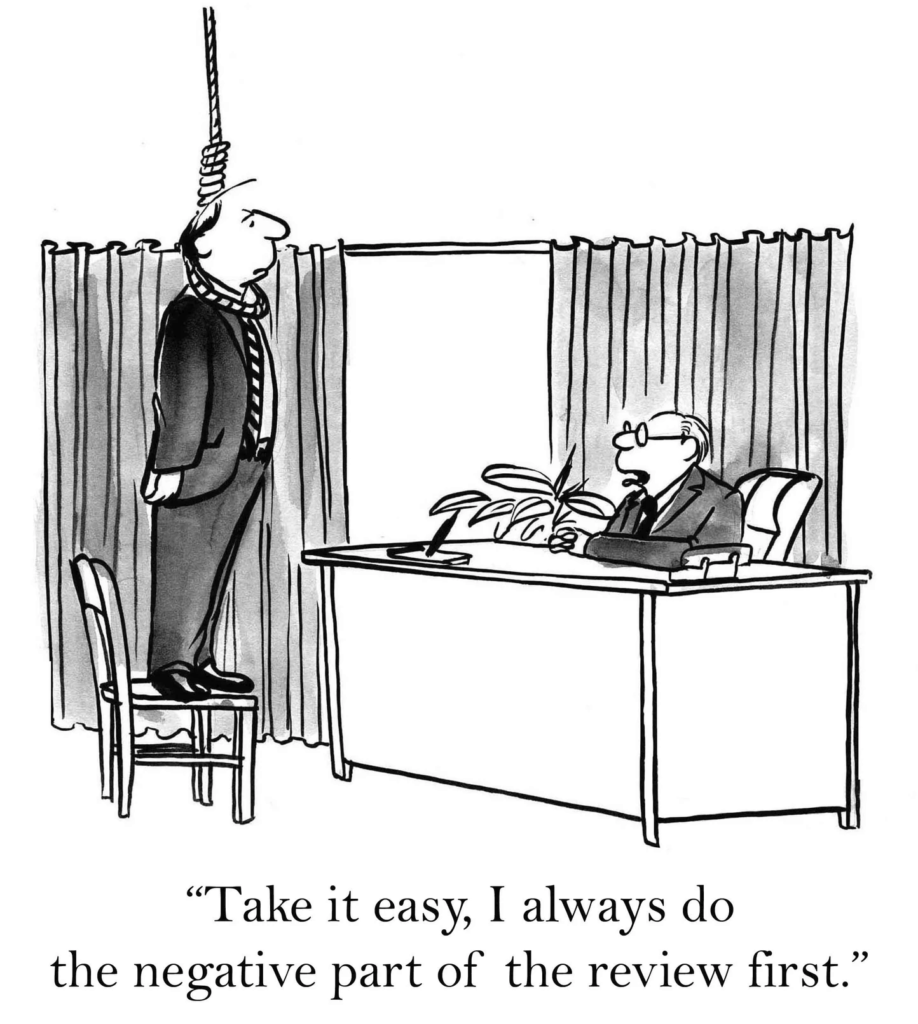“Your blog is too personal for a professional website. You need to write about your professional experience and knowledge.” This feedback landed on me hard a couple of years ago. So hard, in fact, I stopped posting (hence the 18-month hiatus).
I have a hard time not laughing out loud when people tell me, “Feedback is a gift.” Nope. Feedback is not a gift. A gift is something you enjoy; and, if it’s thoughtful, you cherish. I have yet to hear a client tell me they enjoy or cherish receiving feedback. When a client says their goal for a coaching session is to unpack feedback they recently received, I know we are in for a rich, sometimes emotional, session.

No matter how evenly tempered, calm, or centered you feel, listening to someone tell you how they experience you or what they think of your work is nerve-wracking. Performance reviews activate your stress response (aka your safety instinct). That stress response starts well before the meeting does. You get worried about the time you had a typo in your slide deck. You run through the list of all your mistakes.
You fret about what your colleagues said about you.
As the meeting gets underway, you find it difficult to accept the kudos and because you just know that none of your accomplishments matter – only your “opportunities for improvement” – which, according to your inner critic, translates into abject failures.
Then there’s the ‘fly-by’ feedback. Right after a presentation, someone asks (or in the virtual world, pings you), “Would you be open to some feedback?” Is anyone truly ready, for that? We’ve been trained to say, “Yes, thank you,” when we’d rather say, “Not right now, but thanks.” Of course, we cannot discount the unsolicited feedback. At best, it gives a jolt of good-feeling hormones. At worst, it’s a baseball whack to the gut.
No matter the feedback scenario, don’t let it derail you. Think of feedback as information. Data. As Tara Mohr writes in her book, Playing Big, “Feedback gives us facts about the opinions and preferences of those giving the feedback.” Viewing feedback from this vantage point puts distance between you and the words being said. Once you’ve heard the feedback, you will learn more about the person giving it.
Then, lean into curiosity and ask yourself questions:

· What part of this feedback is important?
· What am I learning about this person’s opinions or preferences?
· Given what they said, what might be going on for them
· What feels actionable?
· What more do I need to ask to get more clarity?
· Who else can I bounce this off to see if it might be true or not?
Asking “what” questions, asking for clarification from the person giving the feedback, or getting another person’s perspective moves you forward. Curiosity informs you if the feedback helps you improve. You also discover if the feedback isn’t helpful or relevant to your work.
If you’ve gotten some feedback that has left you reeling, if you find that you can’t accept positive feedback, or you feel more afraid of feedback (positive or critical) than you are of nuclear war, coaching is the place to go. A coach can help you untangle it all.
PS: The feedback I received was right. It’s true, I write a lot from the heart space. It’s also true, conventionally speaking, that blog posts on a business website such as this one should target my ideal client and include a call to action. 😊



